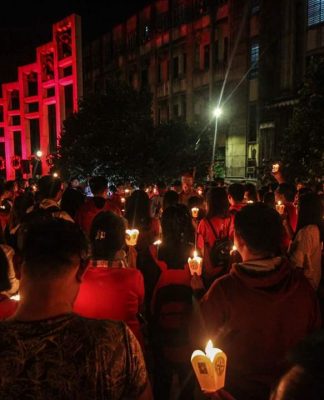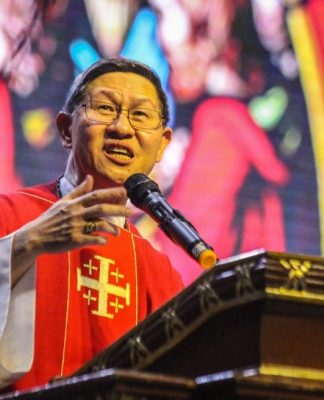THOMASIANS did not have to endure long hours to know the results of the recent student council elections, with polls computerized University-wide for the first time this year.
All faculties and colleges, including UST’s two high schools, adopted the new polling system. Last year, only 10 colleges and faculties had automated elections.
Except for a brief power interruption last Feb. 20, which delayed voting at the Conservatory of Music, Education High School and UST High School, Tabon said the new polling scheme was “implemented well.”
“The loss of electricity supply caused a slight delay in voting in some colleges. But it did not affect the voters’ turnout because the election proceeded after the power supply returned,” said Abadenzio Rexzy Tabon, chairman of the Central Commission on Elections (Comelec).
Overall, voter turnout did not improve.
In last year’s elections, 22,515 Thomasians voted. This year, 22,229 students cast their votes, more than half of roughly 40,000 students in the University.
Preparations
Tabon said a University-wide automated election was first proposed during the summer planning of Central Comelec officials. Thereafter, the Central Comelec met with officials of college-level Comelec units to discuss the plan.
The College of Nursing and the Faculty of Civil Law were the first to have automated elections two years ago.
Lack of resources hampered previous efforts to automate the polls. In previous elections, student leaders preferred to stay in school overnight, guard the counting of ballots, and wait for the proclamation of winning candidates.
However, Tabon said it was “time to create a new tradition in the University” and ensure honest and quick elections.
The Educational Technology Center provided technical support by hosting the software used during the elections in its servers. Through their “E-Leap” online accounts, students were able to cast their votes immediately and efficiently.
New leaders
The Lakas Tomasino Coalition, with five candidates running unopposed, again dominated the Central Student Council (CSC) elections. The new student officers were proclaimed last Feb. 25 at the Tan Yan Kee Student Center lobby.
Jeanne Luz Castillo of the Faculty of Civil Law was elected the new CSC president with 17,542 votes (78.91 percent) while party-mate Thomas Vincent Vergara of the College of Rehabilitation Sciences obtained 16,508 votes (74.26 percent) to secure the vice presidency.
According to Tabon, candidates running for a local or central student council position must obtain at least 25 percent of the votes cast to be proclaimed the winner and prevent the local or the Central Comelec from declaring a failure of election.
Other Lakas Tomasino candidates who won the CSC elections were Lizielle Taguiam of the College of Tourism and Hospitality Management for secretary with 16,644 votes (74.86 percent), Joseph Konrad Balisa of the UST Alfredo M. Velayo College of Accountancy for treasurer with 16,496 (74.21 percent), and Kristoffer John Almeda of the Faculty of Engineering for auditor with 16,714 (75.19 percent).
Meanwhile, independent candidate Margielyn Asilo of the Faculty of Arts and Letters was elected public relations officer with 13,121 (59.03 percent), defeating Lakas Tomasino’s Mar Kenneth Romero who got 8,026 votes (36 percent).
Lakas Tomasino chairwoman Kristine Mae Urbi said students can expect the new set of officers to work hard for the Thomasian community, even if her party did not sweep the elections.
“Expect the incoming CSC to be the backbone and the voice of the students here in UST,” Castillo said.
Vergara for his part said the new CSC officials would “maximize all the resources the CSC has to be able to reach out to as many students as possible and to continue what the past administrations had started.”
Meanwhile, journalism junior Asilo said she would not entirely depend on CSC staffers and executive assistants to disseminate information to students.
“As much as possible I want my presence to be felt in activities and projects of CSC officers,” Asilo said.
















